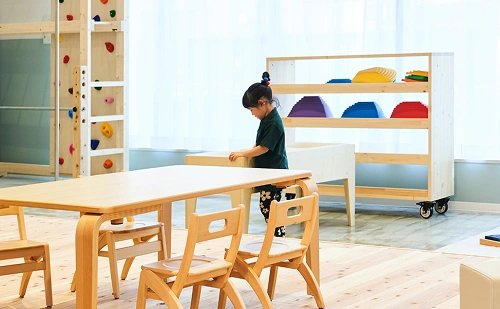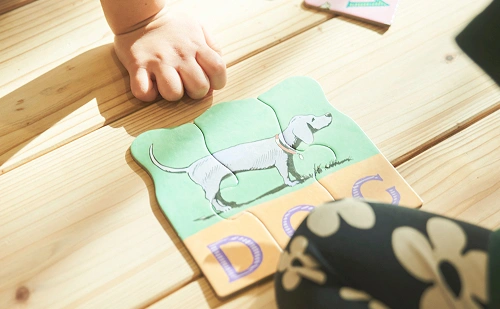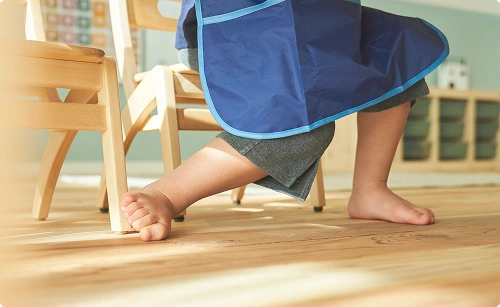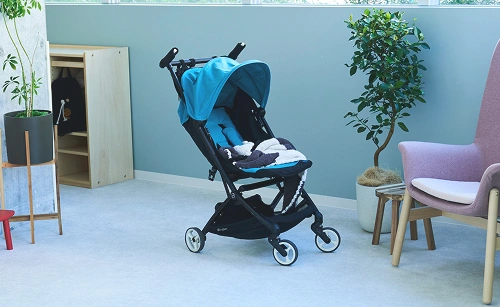About us
The happiness of children, parents and childcare providers is key. We foster and grow inquisitive minds at Pikkas International Preschool.
Mission
To cultivate healthy plants, soil preparation is essential. Good soil has moderate gaps, good drainage, water retention, and excellent aeration. These same principles apply when nurturing young children. First, the children will be encouraged to establish basic daily routines at the preschool. Build trust with caregivers and friends, ensuring that the school is a safe and pleasant environment. Then, each child will be encouraged to think about their “play of the day.” By incorporating a form of “selective education” distinct from free play, children can discover their preferences and learn to express their ideas.[1] Through play-based learning, the children can explore, achieve, and gain satisfying experiences that will build their confidence.
Approach
At Pikkas, we have selected and incorporated methods from various educational philosophies and curricula - Montessori, Reggio Emilia approach, Adlerian psychology, and Finnish education - carefully selected to nurture each child's individuality and growth. Guided by Japan’s Education and Childcare Guidelines, we focus on fostering the 10 qualities we hope children will develop by the end of their childhood, shaping our approach with warmth and care. Above all, we believe that happiness is the foundation of learning. Our preschool is designed to be a joyful, safe, and enriching space where children can explore, grow, and thrive. We respect the diverse lifestyles of families and strive to support parents, not add to their burdens. Creating a positive environment extends to our teachers and staff as well. We are committed to a workplace that is both professional and comfortable, ensuring that educators can dedicate themselves wholeheartedly to the children. At Pikkas, our approach to childcare is "sampo yoshi" - meaning we cherish not only the children but also their families and teachers who support them. By fostering a strong, caring community, we believe we can help every child shine.
Message
Message from founder
Pikkas international preschool founder
Sachiko Nakagawa
I still find myself constantly worrying while raising my daughter. While I hope her acquires essential non-cognitive skills for the future, I often compare her to other children, feeling disheartened or anxious. The scrutiny of others weighs heavily, and societal values shift rapidly, making it difficult to determine the right yardstick in this complex modern world. From my personal experiences, I’ve come to realize that what I desire from childcare support is to be “present.” At Pikkas, we prioritize sharing the aspects of what they learn through play, and providing tailored support that helps them thrive. I believe communicating the less visible aspects of children’s learning and growth, aligns with our vision of “benefit for all.
Message from Ms. Heintges,
A former principal
at International preschool in Duesseldorf, Germany.
I am now 70 years old, grandmother of 2 grandchildren. I studied pedagogy, sociology, and psychology, and also became a primary school teacher in German and geography. Especially in the last 20 years, I have worked with children from 4 months to 6 years old in preschool and kindergarten. I was surprised and very happy to hear the news about Pikkas. Your thoughts stand for internationality, cosmopolitanism, and cultural diversity. I also like the logo, standing for differences, different possibilities, concerns, and views. Diversity is so important in all areas of life. My most important goals when working with children were to treat them with respect and to convey values. In my opinion, children should learn how to deal with problems and conflicts and be encouraged to think independently and open-minded. Language and communication are the basis and framework for conveying these goals. Studies have shown that children of kindergarten age are very open to everything new. Never later they learn more easily and quickly than in the first years of life. Therefore this time should be used for learning by active speaking, playing and acting/doing.






